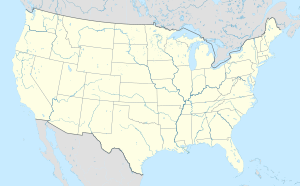Upper Souris National Wildlife Refuge facts for kids
Quick facts for kids Upper Souris National Wildlife Refuge |
|
|---|---|
|
IUCN Category IV (Habitat/Species Management Area)
|
|
| Location | Renville, Ward counties, North Dakota, United States |
| Nearest city | Minot, North Dakota |
| Area | 32,092 acres (129.87 km2) |
| Established | 1935 |
| Governing body | U.S. Fish and Wildlife Service |
| Website | Upper Souris National Wildlife Refuge |
The Upper Souris National Wildlife Refuge is a special place for nature, located about 30 miles (48 km) northwest of Minot, North Dakota. It was created in 1935 to be a safe home and breeding area for many different kinds of birds and other wildlife that travel long distances.
This amazing refuge stretches along 35 miles (56 km) of the beautiful Souris River valley in northern North Dakota. The Souris River area is very important to the history and nature of the plains and prairies in the middle of North America.
Contents
Discover Upper Souris Wildlife Refuge
This refuge covers a huge area of 32,092-acre (129.87 km2). It includes different types of land, like narrow strips of forests along the river. You can also find rich, flat lands that sometimes flood, and rolling hills covered in native grasses. There are also steep, shrub-covered valleys called coulees.
Lake Darling: A Vital Water Source
A very important part of the refuge is Lake Darling. This lake is 9,600-acre (39 km2) big! It's actually a reservoir, which is like a giant storage pond for water. The Lake Darling Dam created it in 1936.
The dam was built to make sure there was enough water for the marshes downstream. These marshes are in both the Upper Souris National Wildlife Refuge and the J. Clark Salyer National Wildlife Refuge. This water helps keep the wetlands healthy for all the animals.
A Haven for Birds
The American Bird Conservancy has recognized the Upper Souris National Wildlife Refuge as a Globally Important Bird Area. This means it's one of the most important places in the world for birds!
Lake Darling is also a critical habitat for the piping plover. This is a small shorebird that is endangered, meaning it's at risk of disappearing forever. The refuge helps protect these special birds.
Birdwatching Paradise
Many people who love watching birds travel from all over the country to visit this refuge. They come hoping to spot small birds that nest in the grasslands. These include the Baird's sparrow, Le Conte's sparrow, and Nelson's sharp-tailed sparrow. You might also see the unique Sprague's pipit here. It's a fantastic place to learn about and observe many different bird species in their natural home.
 | William L. Dawson |
 | W. E. B. Du Bois |
 | Harry Belafonte |


